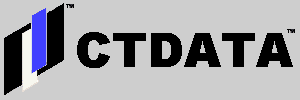This is the one hundredth article posted to the ctdata.com Web Site since it was converted to a modified Slashcode architecture on June 21, 2000. From May 21, 1998, when we adopted NetObjects Fusion until June 21, exactly 25 months, we published only 33 articles to our Web Site.
Is there any doubt that CTDATA is a more effective organization since it began using a database driven Web Site? We suggest that all small and medium-sized organizations force themselves to adopt some sort of content management system. It is the only way for such organizations to use this medium effectively.
In spite of the fact that we have been drinking the CoolAid since we read Philip and Alex's Guide to Web Publishing by Philip Greenspun, we did not realize the profound effect that actually adopting a content management system would have on our business.
At this early point, it is difficult to articulate exactly how the business has changed since we put our new Web architecture in. However, it is possible to say with complete certainty that CTDATA is being exposed to more business opportunities today than it was prior to the deployment of the new architecture.
We are also experiencing increasing returns, in terms of developer productivity, from our decision to drive as many of our Web projects on to the Slash Engine platform as we could.
The new ctdata.com Web Site makes us look like a much larger business than we actually are:
- If a potential customer is interested in staying up-to-date on what we are doing, he or she can sign up for our daily or weekly newsletter.
- If we are trying to assess the interest levels associated with the articles we produce, we can see that by reports that tell us the daily total number of page views, broken down by individual article. These reports are aggregated over time in the form of the running page view counts that are displayed next to each story in the backSlash (content editing and system administration) environment.
Now, we are gradually deploying this architecture to the sites that we operate for a couple non-profit organizations in the New Jersey area. (The first example of this is
www.rcnj.org.) The idea behind this move was to reduce the amount of time it takes for us to perform this pro bono work. But the real advantage is the community building features of the Slash Engine that the non-profit may use to its advantage.
